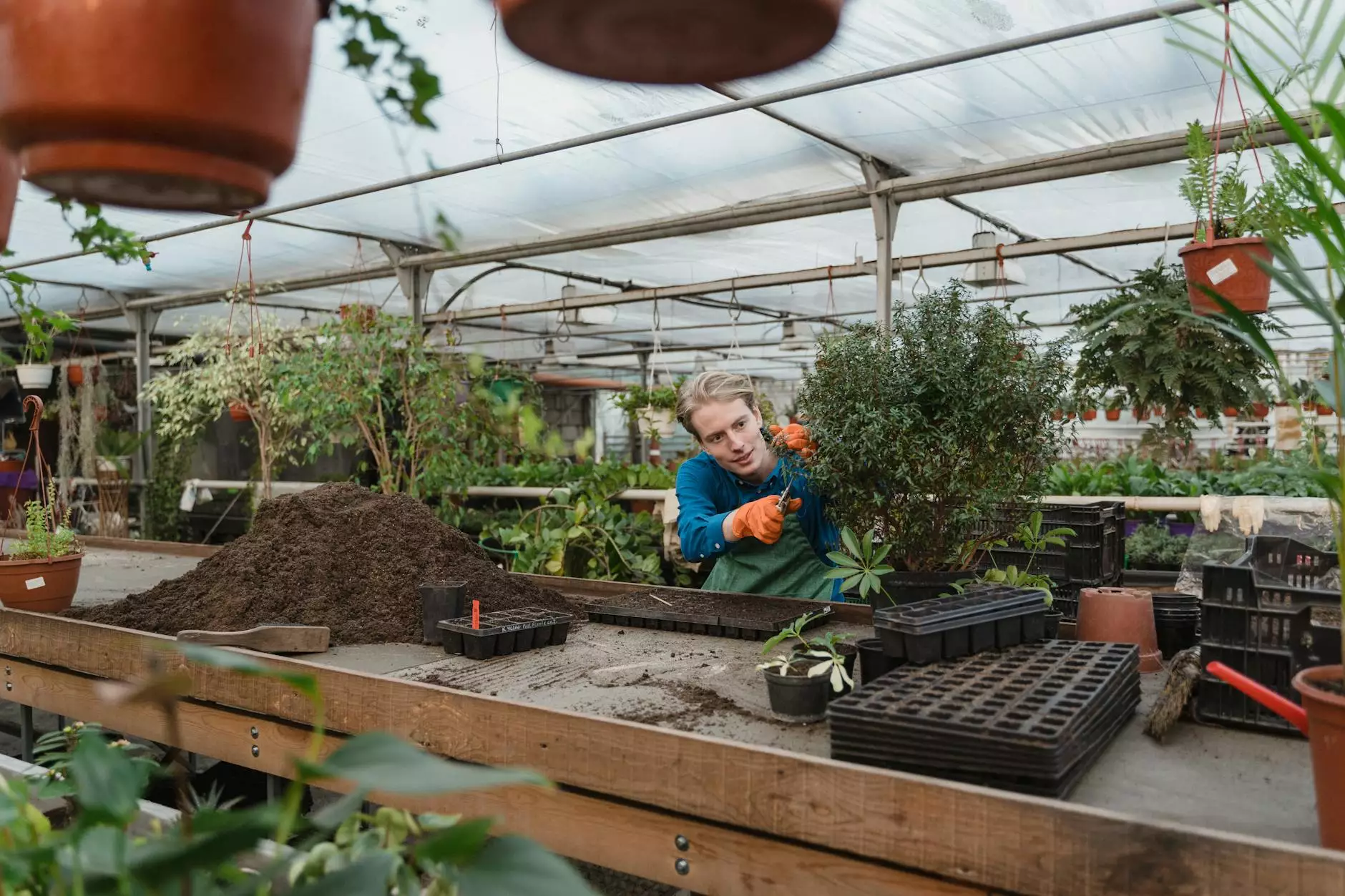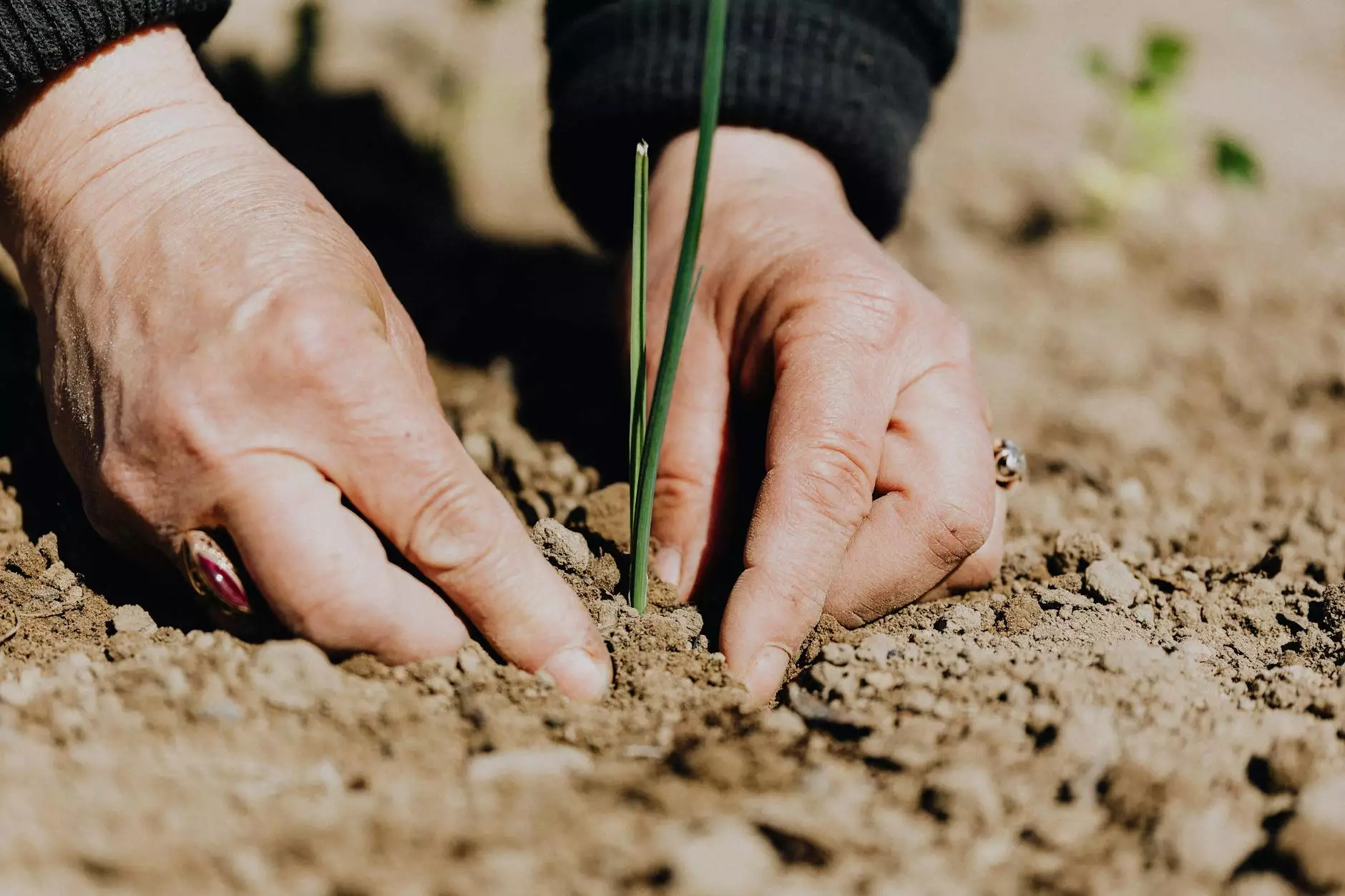What, When & Why of Using Compost - Soils Plus
Blog
Introduction to Compost
Compost is a valuable organic material that plays a crucial role in enhancing soil health and promoting sustainable gardening practices. By decomposing organic waste, compost creates a nutrient-rich environment that nurtures plants, improves soil structure, and reduces the need for chemical fertilizers. Metate Industrial Supply understands the significance of compost in achieving optimal gardening and landscaping outcomes.
The Benefits of Using Compost
There are numerous benefits to incorporating compost in your gardening and landscaping efforts:
- Improved Soil Structure: Compost helps to loosen compacted soil, allowing for better water drainage and deeper root penetration.
- Enhanced Nutrient Availability: Rich in essential nutrients, compost provides plants with the nourishment they need for healthy growth and development.
- Increase in Microbial Activity: Compost introduces beneficial bacteria and organisms into the soil, fostering a thriving ecosystem that supports plant health.
- Water Retention: The organic matter in compost acts like a sponge, aiding in moisture retention and reducing water runoff, ultimately conserving water in your garden.
- Reduced Soil Erosion: The use of compost helps to prevent soil erosion, protecting your garden beds from being washed away during heavy rains.
- Environmentally Friendly: By recycling organic waste and diverting it from landfills, composting reduces greenhouse gas emissions and contributes to a greener, more sustainable environment.
Types of Compost
There are various types of compost available, each catering to specific gardening and landscaping needs:
1. Garden Compost
Garden compost is made from a blend of kitchen scraps, yard waste, and other organic materials. It is versatile and suitable for most garden applications, such as preparing planting beds, enriching existing soil, and mulching around trees and shrubs.
2. Manure Compost
Manure compost typically utilizes animal waste as its main ingredient. It is an excellent source of nutrients and can greatly benefit vegetable gardens and flower beds. It is essential to properly compost manure to ensure that any harmful pathogens are eliminated during the decomposition process.
3. Worm Castings
Worm castings, also known as vermicompost, are produced by earthworms. This type of compost is incredibly rich in nutrients and microbial activity. Worm castings are ideal for seed starting, potting mixes, and providing a nutrient boost to established plants.
4. Leaf Mold
Leaf mold compost is derived from decomposed leaves. It promotes soil moisture retention, improves drainage, and can be used as a mulch or incorporated into garden beds. Leaf mold is an excellent choice for woodland gardens and areas with acidic soil.
5. Mushroom Compost
Mushroom compost, as the name suggests, is a byproduct of mushroom farming. It contains a blend of organic materials, such as hay, straw, poultry manure, and gypsum. Mushroom compost is suitable for a wide range of plants and helps to improve soil fertility.
When to Use Compost?
Determining when to use compost depends on your specific gardening goals:
1. Preparing Planting Beds
Prior to planting, incorporate compost into the soil to improve its fertility, structure, and drainage. This ensures that your plants have access to the essential nutrients they need to thrive.
2. Top-Dressing and Mulching
Apply a layer of compost around your plants to act as a mulch. This helps retain moisture, suppresses weed growth, and gradually releases nutrients as the compost breaks down.
3. Soil Amendment
If your soil lacks organic matter or essential nutrients, mix compost into the existing soil to enhance its overall health and fertility. This is particularly beneficial for rejuvenating worn-out garden beds or areas with poor soil quality.
4. Seed Starting and Potting Mixes
Blend compost with other growing media to create nutrient-rich mixes for seed starting or container gardening. The compost helps provide young plants with the necessary nutrition for optimal growth.
5. Compost Tea
Compost tea is made by steeping compost in water to create a nutrient-rich liquid fertilizer. Use it as a foliar spray or soil drench to provide a quick boost of nutrients to your plants.
The Composting Process
Composting is a natural process that requires the right balance of organic materials, air, water, and microorganisms. Here are the key steps involved:
1. Source Organic Materials
Collect a variety of organic materials, including kitchen scraps, yard waste, grass clippings, leaves, and plant trimmings. Avoid adding meat, dairy, or oily food waste as they can attract pests.
2. Shred or Chop Materials
To accelerate decomposition, shred or chop larger materials into smaller pieces. This increases the surface area and helps to speed up the breakdown process.
3. Layering
Alternate layers of green (nitrogen-rich) and brown (carbon-rich) materials to balance the compost pile. Greens include fresh grass clippings, fruit/vegetable scraps, and coffee grounds, while browns include dried leaves, wood chips, and straw.
4. Moisten the Pile
Ensure the compost pile remains moist, similar to a damp sponge. Regularly water the pile, especially during dry periods, to facilitate the decomposition process.
5. Turn the Pile
Use a pitchfork or a compost turning tool to regularly mix and aerate the pile. This helps to provide oxygen to the microorganisms, speeding up decomposition and preventing unpleasant odors.
6. Patience and Monitoring
Composting is a gradual process that can take several months to a year. Monitor the pile's moisture and temperature levels and make adjustments as needed. Eventually, you will be rewarded with dark, crumbly compost that is ready for use.
Choose Metate Industrial Supply for Quality Compost
When it comes to obtaining high-quality compost for your gardening and landscaping needs, Metate Industrial Supply is your trusted supplier. We offer a wide range of compost products that are carefully crafted to deliver exceptional results.
With Metate Industrial Supply, you can expect:
- Superior Quality: We take pride in providing compost that meets the highest industry standards. Our quality control measures ensure that you receive compost of the finest quality for your projects.
- Selection: From garden compost to worm castings and mushroom compost, we offer a diverse range of compost options to suit your specific requirements.
- Expert Advice: Our knowledgeable team is always ready to help you select the right compost for your needs and provide guidance on composting techniques.
- Convenience: We offer convenient delivery options to ensure that you receive your compost promptly and efficiently.
- Sustainability: Metate Industrial Supply is committed to sustainable practices. Our composting process helps divert organic waste from landfills, reducing environmental impact.
Conclusion
Compost is a valuable resource that offers numerous benefits to your garden and the environment. By incorporating compost into your gardening practices, you can improve soil health, enhance plant growth, conserve water, and contribute to a sustainable future. Choose Metate Industrial Supply for all your compost needs and experience the difference that quality compost can make in your landscaping and gardening endeavors.









